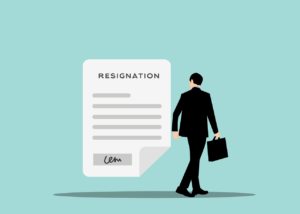The top leadership blind spots aren’t new phenomenon. In fact, these are common and have persisted for practically as long as the market existed. Even in an age of readily available information, it’s far too easy to get caught up in these traps. So, let’s take a quick look at the most common leadership blind spots to avoid.
Leadership Blind Spots Lead to Failure
Blockbuster. Walden Books. Barnes and Noble. MySpace. J.C. Penny. Sears. K-Mart. Edsel. Steak and Ale. The list goes on and on and on and on. Of course, hindsight is 20/20. But, even in when things began to unravel, these brands just didn’t do enough to adapt.
When you look closely at what triggers crises in organizations, you often see that there is a major leadership oversight or blind spot that has allowed the crisis to exist in the first place – and then grow, unrecognized, until it’s too late. Just as many leaders want to be perceived as trustworthy in a rapidly changing environment, leaders themselves need to be aware of who and what they are trusting. Misplaced trust is a clear precursor to trouble. —Forbes
What so many in the public saw as clear writing on the wall, the powers-that-be or rather, were, internally didn’t fully comprehend or heed. The result — utter failure. All of the above examples are prime examples of blind spots taking over and leading straight to obsolescence.
Top Leadership Blind Spots Harming Businesses
It’s not altogether clear what actually happened to bygone companies but it is readily clear what action was taken simply did not suffice. Okay, that’s a bit obvious. However, it’s not always easy to see what’s truly going on and that’s what gives blind spots their names. Here are the top three leadership blind spots harming businesses today:
- The dreaded status quo. Sure, we’ve all heard and even used the term. Still, it’s used so much that its meaning has nearly been lost. Status quo ante or literally, “the state in which before,” says it all. “Before,” meaning a shift occurred. When things are going well, it’s all too easy to forego considering what might lie ahead and that’s a big blind spot.
- Spending even more money. When a project doesn’t go the way it’s planned, there just might be a temptation to turn it around — by throwing more money at it. But, bailing out is only a stop-gap measure, it doesn’t actually remedy the problem.
- Focusing on the short-term instead of long-term. Although short-term wins do much they also can obscure long-term consequences or trends. While it’s great to accomplish something that pays off today, it’s very damaging to let that satisfy and take the edge off the unknown of tomorrow.
What other leadership blind spots would you include? And, how do you identify and get past them and others? Please share your experiences by leaving a comment!
For more good reading on Blind Spots, please click on these links for a book written by a good friend, author and paid keynote speaker, Kevin McCarthy.
Bestselling book: Blind Spots: Why Good People Make Bad Choices
Www.KevinMcCarthy.com
Www.LinkedIn.com/in/kevinmccarthyCSP
Www.Twitter.com/kevinmccarthy01
Immediate Past President for National Speakers Association, Oregon Chapter. NSA Chapter Member of the Year 2014-2015.
Interested in learning more about business? Then just visit Waters Business Consulting Group.



